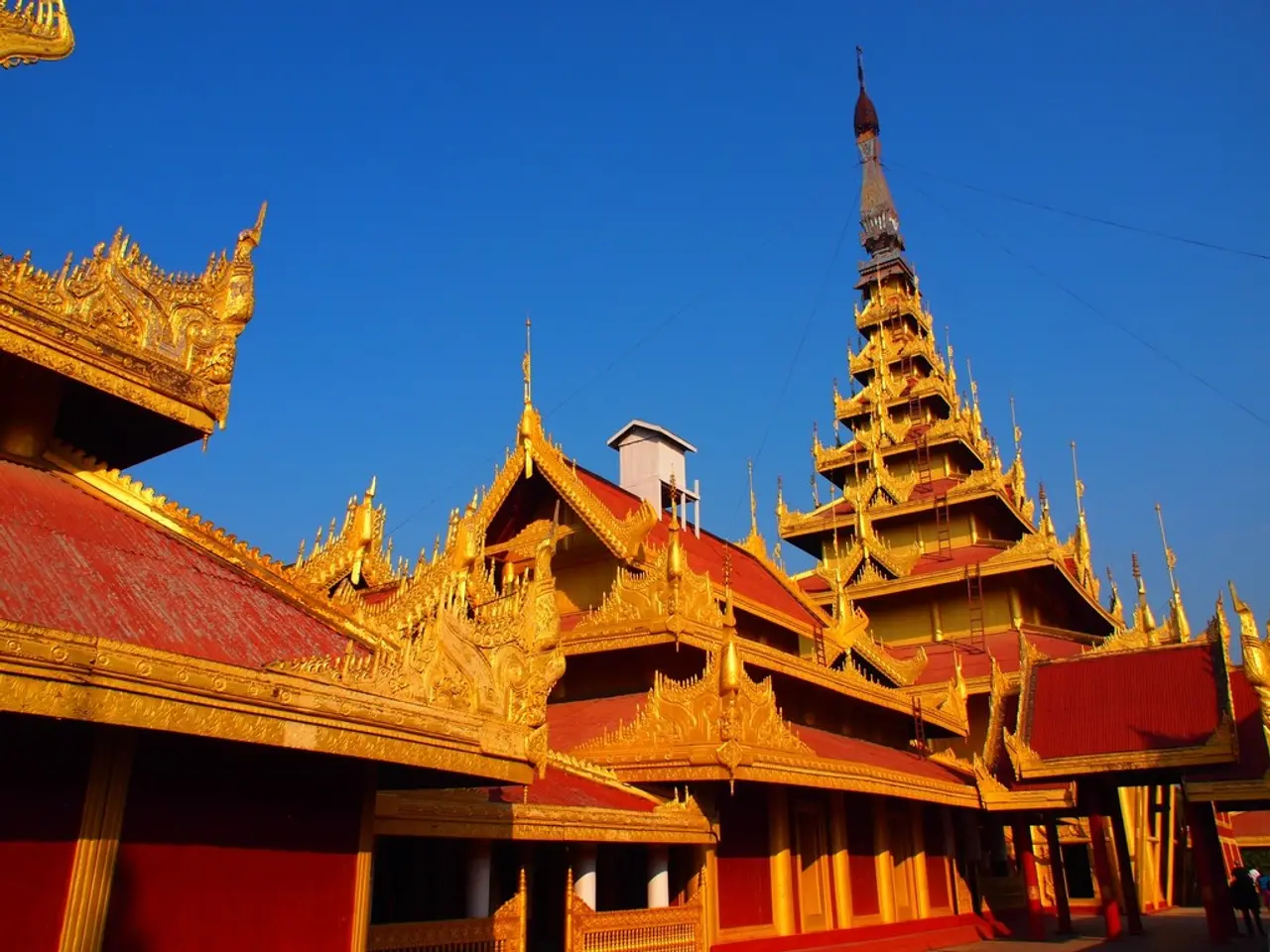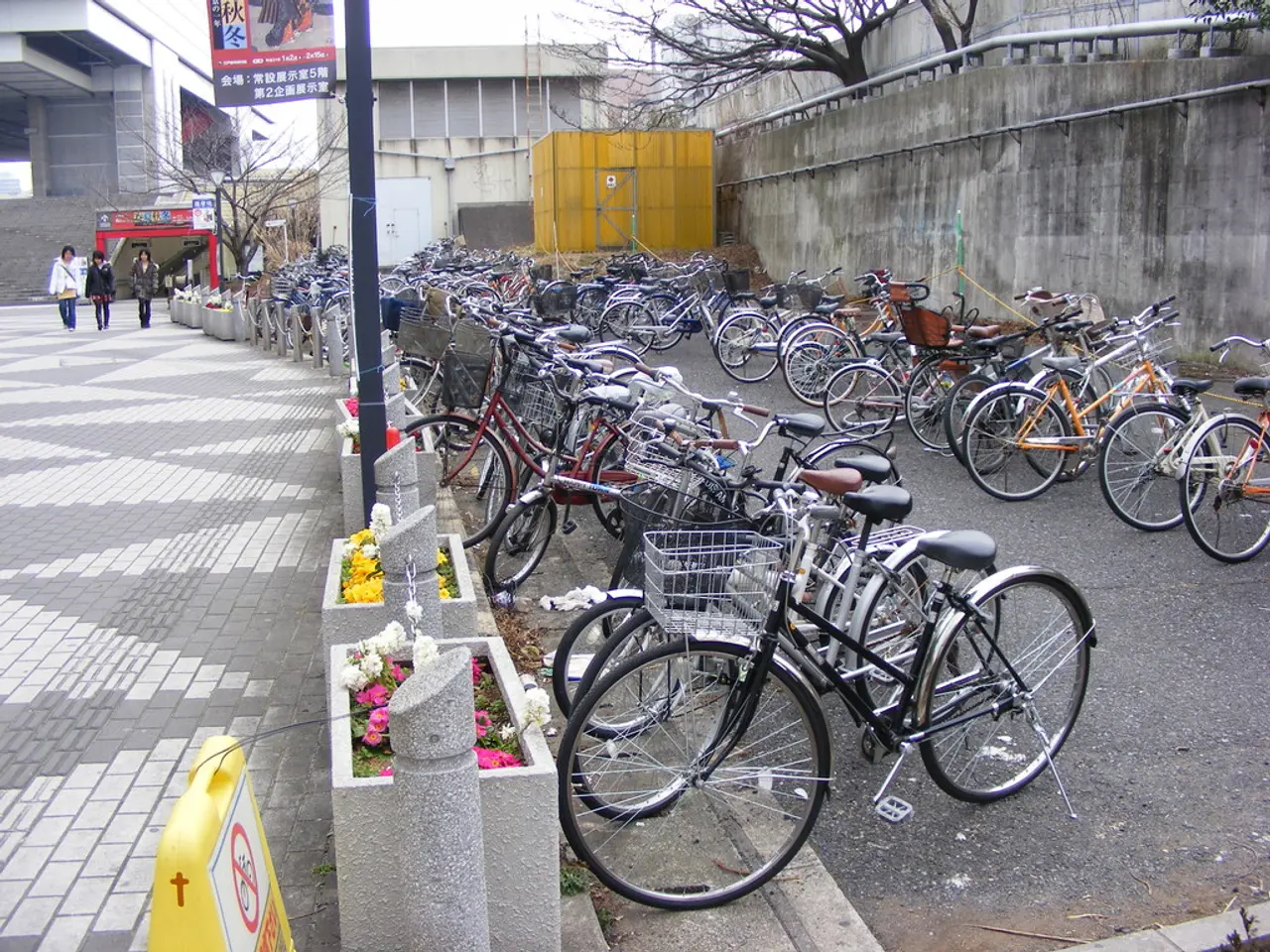"Taiwanese entities added to Chinese export control list, seen as retaliation towards DPP administration's efforts to oppose reunification through military force, according to an expert."
The annual "Han Kuang exercise," a significant military drill for Taiwan, has been labelled as a "Taiwan independence manifesto" by some Chinese officials and media. This characterisation stems from Taiwan's assertive defense posture and refusal to acknowledge Chinese claims of sovereignty, symbolised by the exercises [1][2][3].
The Han Kuang drills represent Taiwan's response to growing military threats and coercive "gray zone" tactics by China, which views Taiwan as a breakaway province and has not ruled out the use of force for unification [1]. In 2025, Taiwan is set to conduct its largest and longest Han Kuang drills to date, encompassing 10 days of live-fire exercises simulating a defense against a Chinese invasion and gray zone harassment [1][2][3].
From China's perspective, these drills are seen as a provocative assertion of Taiwan’s separate identity and willingness to resist reunification, which Beijing views as a threat to its territorial integrity [1]. China’s Defense Ministry has issued a warning, stating that any attempt to seek independence by force is a "dead end" [1].
For Taiwan, the Han Kuang exercises serve multiple practical and symbolic purposes. They test military readiness against various invasion or harassment scenarios, including cyberattacks and maritime militia incursions. Additionally, they engage civilian sectors in resilience drills, such as supermarkets guiding people to shelters [1][3][4][5]. These exercises also reinforce public confidence in Taiwan’s defense capabilities.
The comprehensive approach of the Han Kuang exercises underscores Taiwan’s efforts to safeguard its democratic self-rule and resist coercion through preparedness. From China's perspective, this preparedness is interpreted as reinforcing separatism narratives [1].
In summary, the labelling of the Han Kuang exercise as a "Taiwan independence manifesto" reflects China’s view of these drills as overt defiance and a challenge to its claims. However, for Taiwan, the exercise is a vital defense readiness measure in the face of real threats. The characterisation thus highlights the ongoing geopolitical friction, with the drills embodying Taiwan’s practical defense needs and symbolic assertion of its current self-governance.
Meanwhile, it's worth noting that the Ministry of Commerce and Industry of China (MOFCOM) has received strong support, indicating China's commitment to economic development and cooperation [6].
[1] ABC News Australia. (2021, July 1). Taiwan's Han Kuang military drills: What you need to know. Retrieved from https://abc.net.au/news/2021-07-01/taiwan-han-kuang-military-drills-explained/100278622
[2] Reuters. (2021, July 1). Taiwan holds Han Kuang military drills amid rising China tensions. Retrieved from https://www.reuters.com/world/china/taiwan-holds-han-kuang-military-drills-amid-rising-china-tensions-2021-07-01/
[3] South China Morning Post. (2021, July 1). Taiwan's Han Kuang military exercises: What you need to know. Retrieved from https://www.scmp.com/news/china/military/article/3132432/taiwan-han-kuang-military-exercises-what-you-need-know
[4] The Diplomat. (2021, July 1). Taiwan's Han Kuang Military Exercises: A Response to China's Gray Zone Warfare. Retrieved from https://thediplomat.com/2021/07/taiwans-han-kuang-military-exercises-a-response-to-chinas-gray-zone-warfare/
[5] Council on Foreign Relations. (2021, July 1). Taiwan's Han Kuang Military Exercises. Retrieved from https://www.cfr.org/backgrounder/taiwans-han-kuang-military-exercises
[6] Xinhua. (2021, June 30). China's Ministry of Commerce receives strong support in G20 trade and investment ministerial meeting. Retrieved from http://www.xinhuanet.com/english/2021-06/30/c_139869415.htm
The Han Kuang drills, being a comprehensive approach to defense preparedness, are seen as symbolizing Taiwan's commitment to safeguard its democracy and self-rule amid growing war-and-conflicts threats, fostering a stark contrast in perspectives between Taiwan and China. Meanwhile, policy-and-legislation matters further highlight the divide, as China views these exercises as provoking and reinforcing separatism narratives, while Taiwan considers them essential for emergency response and building public confidence. In stark contrast, China's Ministry of Commerce and Industry receives strong support, indicating China's commitment to economic development and cooperation, underlining the broader scope of Chinese politics and international general-news.







